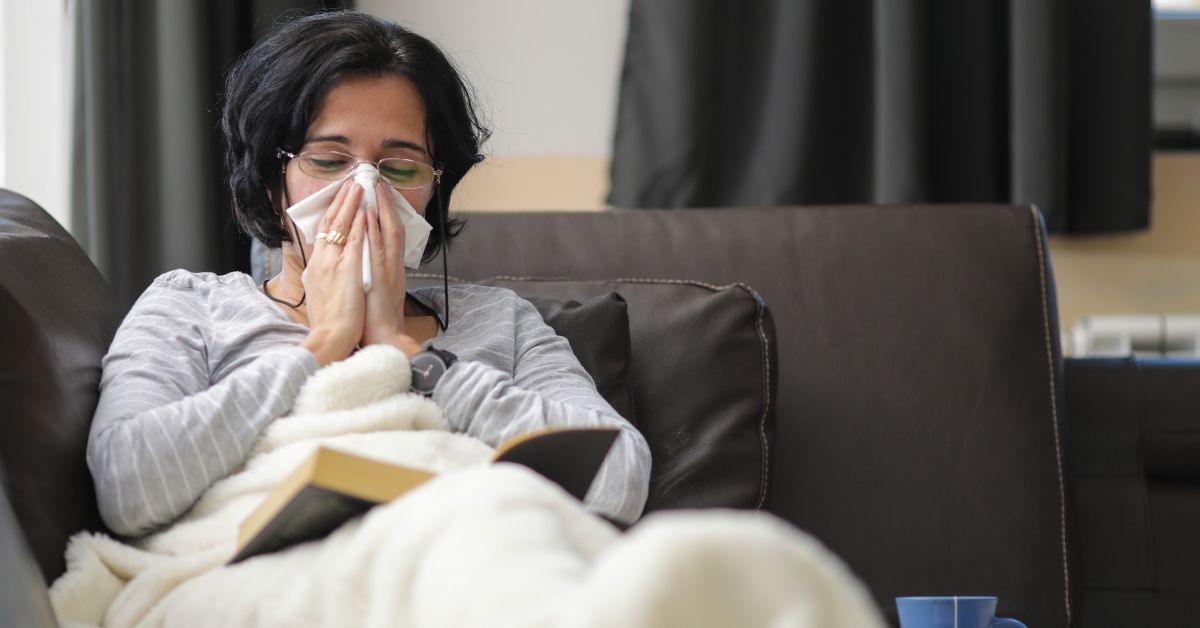If you ever experience nausea during your period, it may make you worry that something is wrong. But most of the time, it’s pretty normal. And it’s something many women deal with.
Hormones are usually the cause
For most women who experience nausea during or before their periods, it’s just a normal part of pre-menstrual syndrome (PMS). A hormone called prostaglandin circulates around your body during your time of the month. It can cause nausea, vomiting, diarrhea and headaches.
PMS typically begins a week or two before your period. Your breasts may be sore and you may be constipated. Back pain, headaches and bloating or swelling may also occur.
Emotionally, you may feel anxious or irritable. Some women go through mood swings or find themselves crying for no reason. You may even have trouble sleeping.
Learn more about menstrual conditions and treatments to see if you may need to consult with an OBGYN.
Womens’ Health Resources
Find an OBGYN
Painful cramps can also cause nausea
If you suffer from dysmenorrhea, which is just a big word for painful cramps, you may also experience nausea. Strong pain in your back, stomach, legs, hips and pelvis can make you feel like you might throw up.
“During your period, your uterus contracts. Your uterus also releases natural chemicals called prostaglandins. These chemicals are what can cause cramps,” says Kelly Brier San Miguel, MD, an OB-GYN in our Greenville market.
Two serious causes of nausea during your period
PMS is often harmless. However, there are two causes of nausea during your period that can be serious.
The first is endometriosis, which is the most common medical condition that causes period pain. It occurs in 1 in 10 women of reproductive age, Dr. San Miguel explains. If you have this disorder, the tissue in your uterus that sheds and causes your period each month grows outside your uterus instead. Sometimes, endometriosis is so painful that it can make you sick.
Other times, that tissue grows near your intestines. This can also make you nauseous. Other symptoms you may have include fatigue, diarrhea, constipation, bloating and heavy bleeding during your period. Some women with endometriosis also find sex to be painful. They may even feel pain while urinating or having a bowel movement.
“Treatment for endometriosis depends on the extent of the disease, your symptoms and whether you want to have children,” Dr. San Miguel says. “Endometriosis may be treated with medication, surgery or both. When pain is the primary problem, medication usually is tried first.”
Pelvic inflammatory disease (PID) is another serious cause of nausea during your period. Most women get this when bacteria move from the vagina to the uterus, ovaries and fallopian tubes. It can cause cramps, pain during sex, pain during urination and pelvic pain. In more serious cases, you may have a fever and chills. PID is usually due to bacteria from a sexually transmitted disease. It can also develop during childbirth or from a condition called bacterial vaginosis.
“No matter if your period pain is mild or severe, you can ask your OB-GYN for help. Especially if your period pain causes you to miss school or work, or disrupts your everyday activities,” Dr. San Miguel says.
Dealing with nausea during your period
If you find yourself feeling nauseous during your period, there are some things you can do to feel better. Sometimes, just getting some fresh air or going for a walk can help. A cool compress may also do the trick.
Make sure you’re drinking plenty of water and sticking to a bland diet. Ginger may also help. Drink some ginger ale or keep some ginger-flavored candy on hand. Many people swear by drinking peppermint or chamomile tea. If none of those help, try taking an antacid.
“Some self-care tips that you may find helpful include exercising regularly throughout each month, taking a warm bath or putting a heating pad on your abdomen or lower back and getting more sleep, especially right before and during your period,” Dr. San Miguel adds.
When to see your doctor
While nausea is normal during your period, you may want to see a doctor if you’ve never felt it before. If you start throwing up, especially to the point that you’re dehydrated or losing weight, seek medical help as soon as possible.
If you have a fever, feel severe pain or have unusual discharge from your vagina, you’ll also want to contact your doctor right away.
If you have questions about your period, we’re here to help. Learn more about the obstetrics and gynecology services we provide at Bon Secours.





